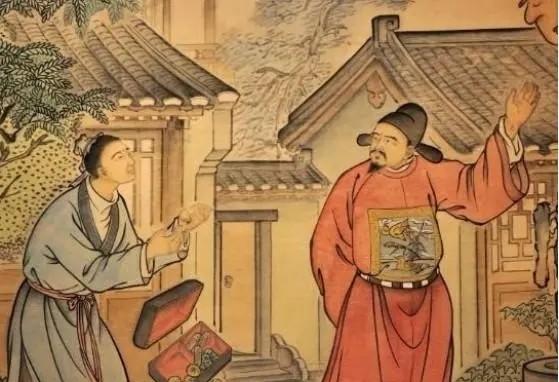Ancient officials took "purity, prudence, and diligence" as the principle, and the minimum requirement of "diligence" was to commute to work on time, and there was no late arrival, early departure, absence, etc., which was one of the basic principles of ancient officials. The working hours of ancient officials were different from the current eight-hour work system of "nine to five", and on the whole, they went to work early and left work early.

As early as two thousand years ago, in the "Book of Poetry Qi Feng, Chicken Song", there is a story that the wife urged her husband to get up and go to work in the morning, saying: "The rooster has called, and all the people in the upper dynasty have arrived; the east has been brightened, and the upper dynasty has been busy." Because of the inconvenience of transportation at that time, so it is necessary to get up very early to prepare for going to work on time, so it can be seen that from the Spring and Autumn, the ancients had the tradition of "chicken singing and going to work", and after that, this period was fixed as "卯時", that is, five to seven o'clock in the morning. So there is a saying of "going to work".
For example, the Qing Dynasty stipulated that the work should be left at 4 p.m. in spring and summer, and 3 p.m. in autumn and winter, which has formed an ancient custom, that is, from about 6 or 7 o'clock in the morning to 3 or 4 o'clock in the afternoon, a total of more than eight hours.
Just like the modern urban commute, the ancient commute spent a lot of time on the road. Bai Juyi, a great poet of the Tang Dynasty, once wrote a poem describing the difficulties on the way to work, and his poem said: "Retreat to the night, worship the table out of the morning", this phenomenon is very common, because the ancient house price is not lower than now, many middle and low-level officials often can not afford to buy a house near the center of the capital, had to buy the house to the "fifth ring" outside, the road is far away and the traffic is inconvenient, so walking home is "forced night".
In ancient times, the first thing an official did on the job was to hold a meeting. In the central government, the imperial court held the highest level of court meetings, and the working hours of local organs at all levels, similar to those of the Beijing Dynasty, also had the procedure of first attending meetings presided over by the chief and then working separately.
Of course, meetings are often accompanied by a determination of the number of people, and colleagues working together are familiar with each other, and who has not been able to see at a glance. Therefore, this has also become a kind of "roll call" in disguise.
If anyone is late or absent from work, the ancient law has strict regulations. For late absences, in addition to "playing the board", there are various punishments such as wage deduction, demotion, removal and even imprisonment.
For example, there is a decree in the "Tang Law's Neglect of the Office System" that "officials cannot go up for no reason," that is, internal and external officials should go to work without going to work, and be flogged for one day of absenteeism, and every three days they are added to the first class, and when they are twenty-five days, they are punished with a staff beating a hundred large boards, and when they reach thirty-five days, they are sentenced to one year's imprisonment. At the same time, a specific judicial interpretation was made to the effect that internal and external officials should check the actual number of people by name, sometimes several times a day, frequently roll call, and if the roll call did not arrive, each missing roll call was flogged twenty small boards. If you do not come to work at all every time you fail to take the roll call, the number of days is calculated and punished according to the crime of not going to work without any reason.
In ancient times, late arrivals were also fined as many times as they are now. During the reign of Emperor Xuanzong of Tang, "the military attaché of the Wen Dynasty, those who do not arrive for no reason, seize a season of Lu" (Tang Huijiao, vol. 24). By the time of Emperor Suzong of Tang, "the imperial counselor did not go for no reason and seized the January salary." When he came to Tang Wenzong again, "Wen Wu was often a counselor, but the dynasty could not participate, and it was estimated that the amount of money was punished twenty-five times per consecutive time."
Absenteeism can also result in removal. During the Qianlong period of the Qing Dynasty, a Hanlin named Qian Zaishang gave the emperor Sun a teacher, but because he was absent from work for several days, he was dismissed from his post and retained in his post, thus losing the opportunity to go out on a bad exam.
There are also those who are in prison for absenteeism. The Tang Law stipulates that the sentence of absenteeism for 35 days is one year in prison. Officials who work in important military towns or border areas are also guilty of a first-class crime.